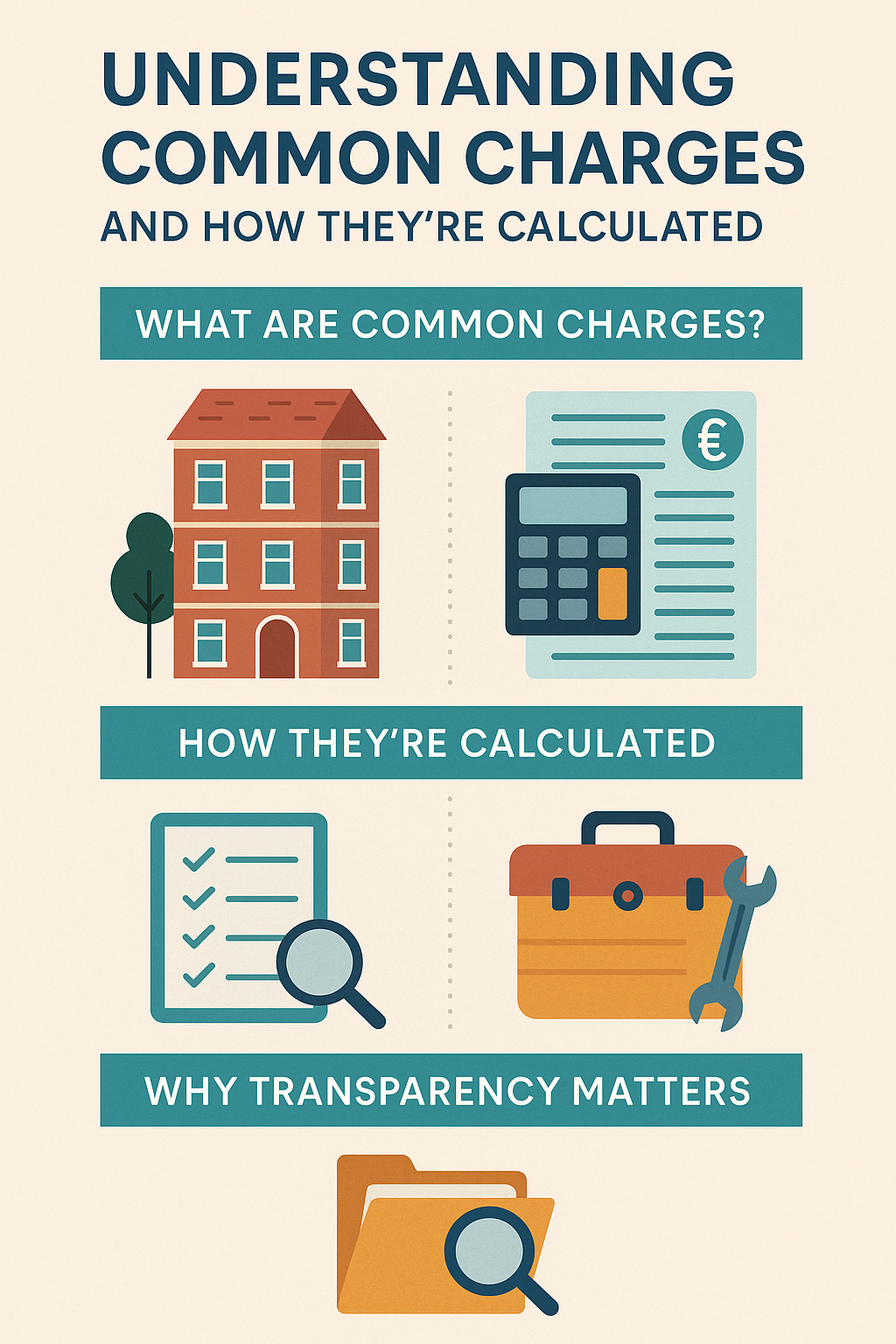
When you own a flat or property within a managed building in Scotland, you’ll likely pay
what’s known as common charges. These payments cover the shared costs of maintaining and
managing your building — but what exactly are you paying for, and how are these charges
worked out?
In this guide, we’ll break down what common charges include, how they’re calculated, and
how Homes Book Factoring ensures complete transparency for both landlords and tenants.
What Are Common Charges?
Common charges are the regular payments made by property owners to cover the cost of
maintaining shared parts of a building or development. These areas might include:
- Roofs, gutters and external walls
- Stairwells and entry systems
- Gardens, paths and car parks
- Lighting and cleaning of communal areas
- Buildings insurance and maintenance contracts
Essentially, they ensure the property remains in good condition — protecting your investment
and ensuring a safe, pleasant environment for everyone living there.
How Are Common Charges Calculated?
At Homes Book Factoring, transparency is key. Each property’s share of the total cost is
calculated based on the title deeds, which usually specify what percentage or “pro indiviso share” each flat or unit contributes.
Here’s how it typically works:
- Assessing the Required Work: We identify all necessary maintenance and services — from regular cleaning to roof inspections and insurance renewals.
- Obtaining Quotes & Approvals: Where major work is needed, we gather competitive quotes and consult with owners before proceeding.
- Splitting the Costs: The total cost is then divided between all owners according to the share noted in the title deeds.
- Clear Invoicing: Each owner receives a detailed breakdown of what their common charge covers — no hidden extras, no surprises.
For example, if there are 10 flats in your building and the cleaning contract costs £1,000 per
year, and the title deeds specify equal shares, each owner pays £100 annually for that service.
What Do Common Charges Typically Cover?
Depending on your property and agreement, your common charges might include:
Category Example Costs
Maintenance & Repairs Roof work, gutter cleaning, painting, window replacement
Cleaning & Groundskeeping Stairwell cleaning, bin area upkeep, grass cutting
Insurance Building insurance (required for most multi-owner buildings)
Management Fees Administration and oversight by the property factor
Reserve Fund A savings pot for future large-scale repairs
By pooling costs this way, all owners share responsibility and avoid unexpected large bills for
essential maintenance.
At Homes Book Factoring, we know how important trust and clarity are when it comes to
managing your property finances. That’s why every owner receives a clear statement of their
account and itemised breakdowns of what has been spent.
Why Transparency Matters
At Homes Book Factoring, we know how important trust and clarity are when it comes to
managing your property finances. That’s why every owner receives a clear statement of their
account and itemised breakdowns of what has been spent.
We also encourage owners to ask questions — our team is always available to explain
invoices, provide supporting documentation, or discuss future maintenance plans.
What Happens If You Disagree With a Charge?
In Scotland, property factoring is regulated under the Property Factors (Scotland) Act 2011.
This means factors like Homes Book must adhere to a strict Code of Conduct, ensuring fair
and transparent practices.
If you ever have concerns about a charge, you have the right to request clarification and
supporting documentation. Homes Book Factoring aims to resolve all disputes quickly and
fairly — communication is key.
Keeping Your Building in Great Shape
Ultimately, common charges aren’t just a cost — they’re an investment in your property’s
value and longevity. Well-maintained communal areas protect your asset, reduce repair costs
in the long term, and make the property more attractive to tenants and buyers alike.
With Homes Book Factoring, you can rest assured your building is being cared for
professionally, transparently, and efficiently.



